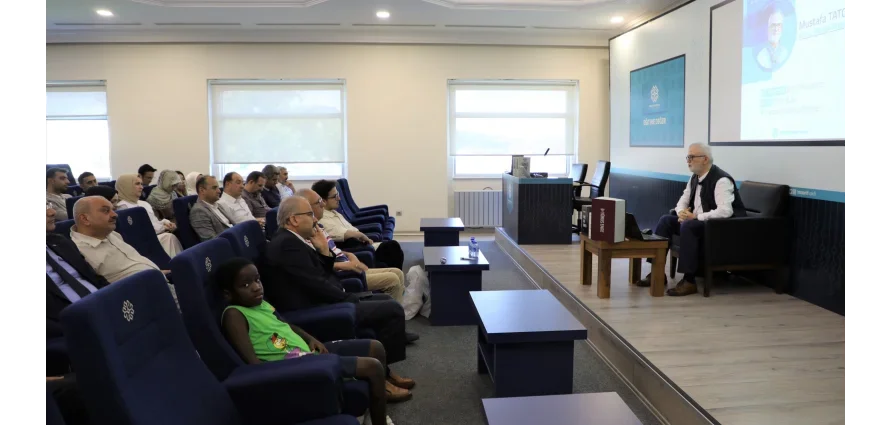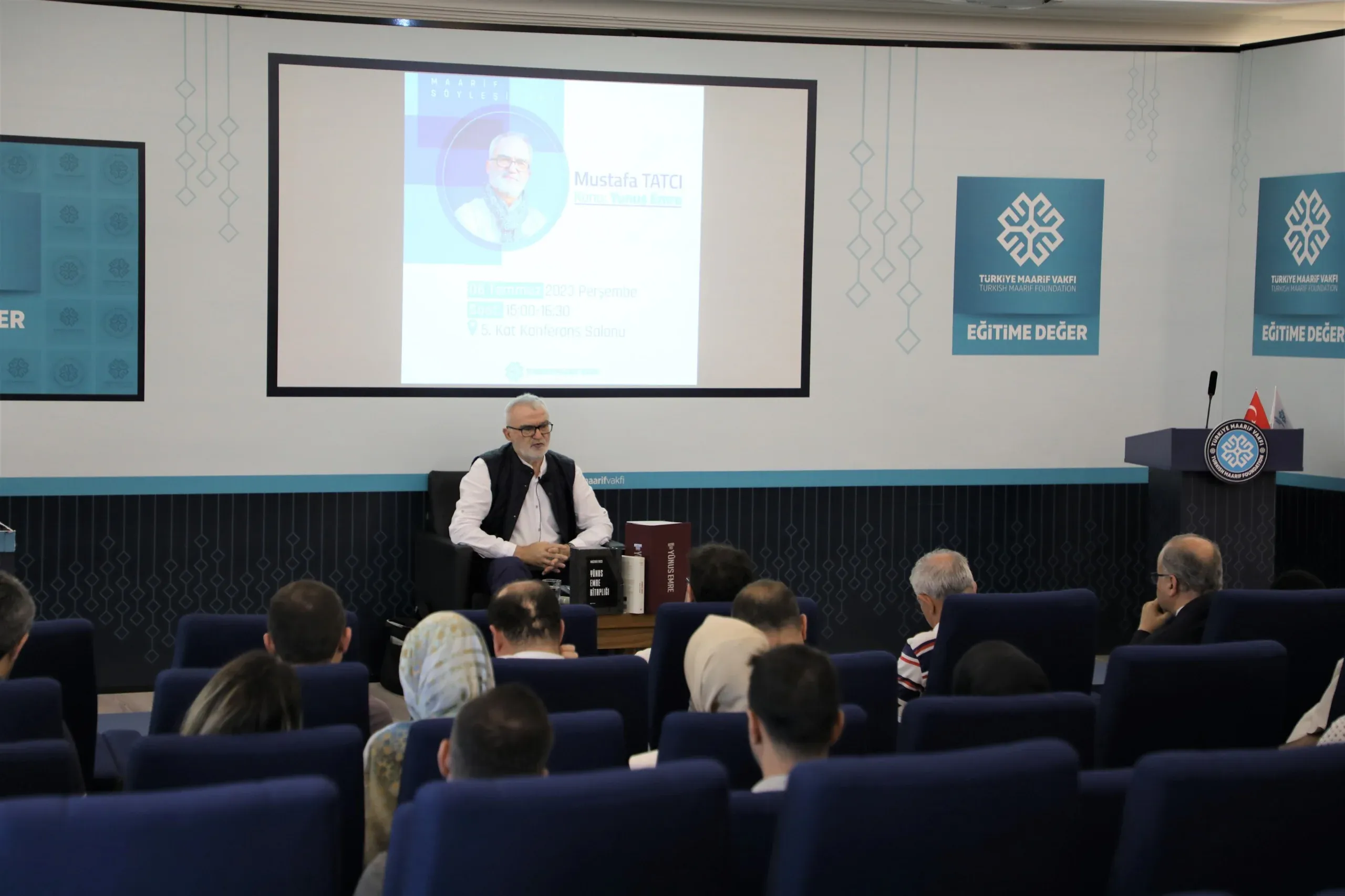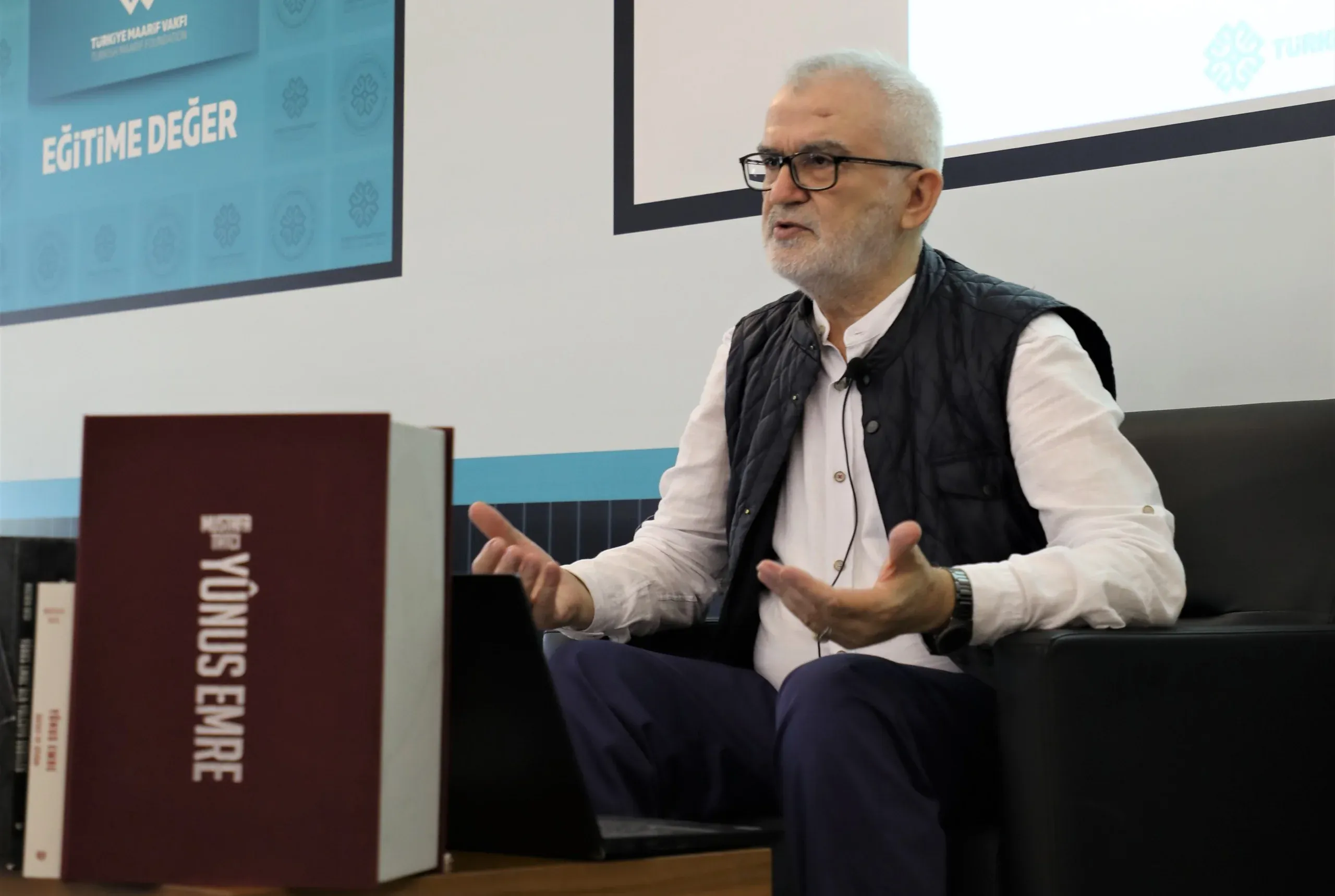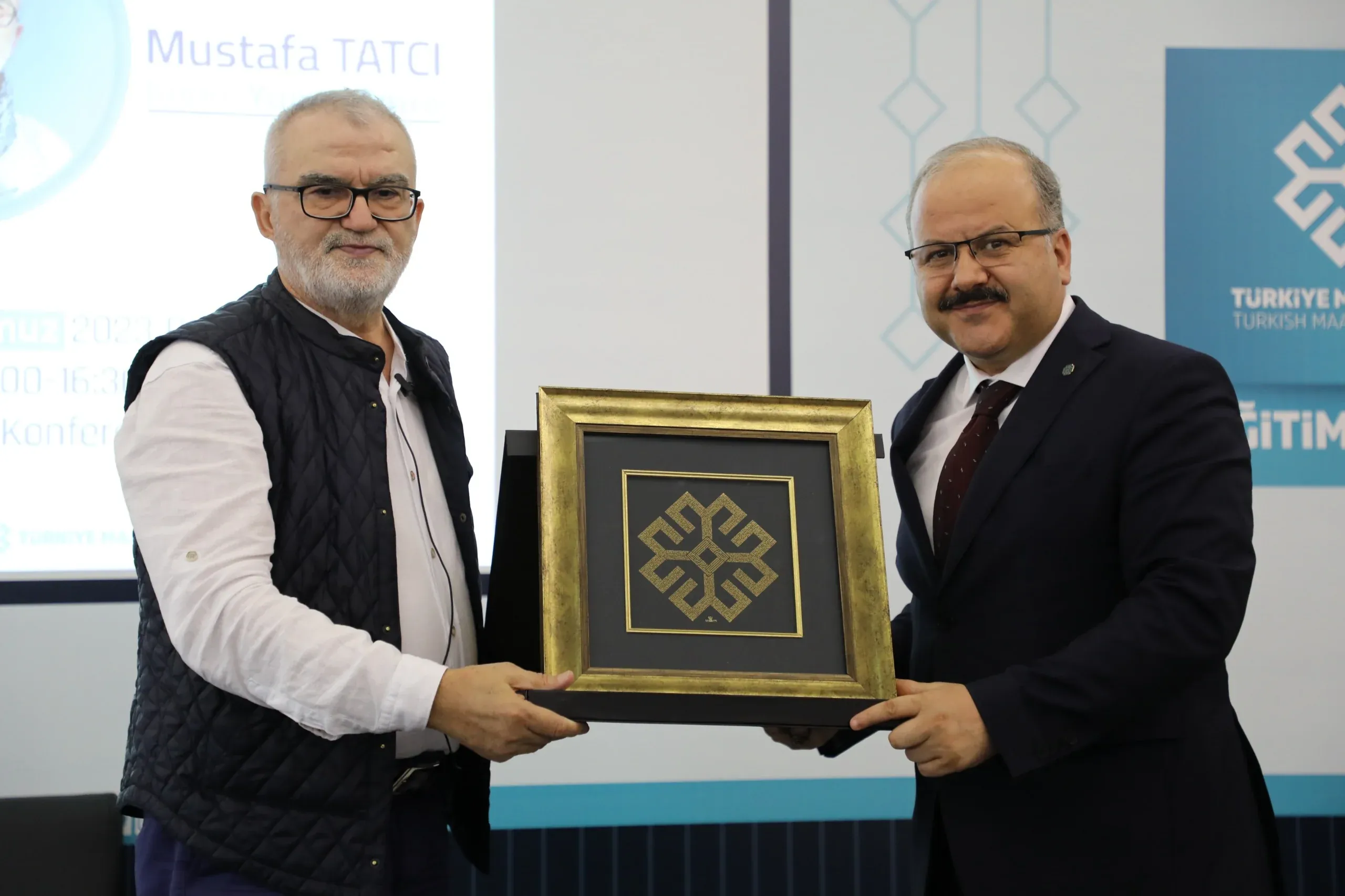

July 13, 2023
During the regular Maarif Conversations organized by Turkish Maarif Foundation, Yunus Emre, one of the most important cornerstones of our civilization, was discussed. Dr. Mustafa Tatcı, who has made valuable contributions to the studies of Yunus Emre, was the guest speaker at the conversation. The event was attended by Prof. Dr. Ahmet Emre Bilgili, the Acting President and Trustee Board Member of the Turkish Maarif Foundation, Board Member Ahmet Türkben, department heads, and employees.

"The Scients fly with the wings of love and wisdom"
Mustafa Tatcı emphasized the significant influence of many individuals in shaping our identity in Turkish history, stating, "The most important figure in the field of Eastern Turks is Hazrat Ahmet Yesevi. He passed away in 1166 at the age of 125. In the West, it is Yunus Emre. He passed away in 1321. The Turks accepted Islam during the Karakhanids period in the 10th century. Islamic armies came and went to the regions that are now within the borders of China. There were some minor conflicts in history until that period. The Sufis played an important role in the acceptance of Islam by the Turks. These individuals laid the groundwork for Hazrat Ahmet Yesevi. So who is Yesevi? The clearest answer to this question is through books, namely the Quran and the practices of Prophet Muhammad. Their extensions are love and wisdom. The Scients fly with two wings: love and wisdom," he stated.
"If Islam is practiced in Kazan and Anatolia today, we owe it to Ahmet Yesevi"
Tatcı drew attention to the fact that the geographical area where Hazrat Ahmet Yesevi lived was like an infinite desert, where the sky and the earth seemed to merge. He said, "It is an area where people are not connected to each other. Think about hundreds of years ago, there were no means of transportation. The only means of transportation were horses and camels. Therefore, people did not have any contact with each other. In such an environment, Yesevi grew up without a mother and father, and his sister sent him to Bukhara and Samarkand to study. He went to Yusuf Hemedani. He received education predominantly in Arabic and Persian languages. People in that region had no possibility of understanding Arabic and Persian. Ahmet Yesevi made a revolutionary move in this region by presenting the knowledge of the Quran and the practices of Prophet Muhammad in the Turkish language for the first time in history. From this perspective, the first characteristic of Hazrat Yesevi is that he presents true Islam, and the second characteristic is that he presents Turkish Islam." Tatcı emphasized that Ahmet Yesevi also represented active Islam and pointed out that if the flag of Islam is waving in Kazan today and if we can live Islam in Anatolia, it is thanks to Hazrat Yesevi.

"Yunus Emre is the last of the previous and the first of the later"
In the Western context, Mustafa Tatcı stated that Yunus Emre is one of the most important actors in the spread of Islam. Referring to the line "Those who have preceded us, who hide the essence, I have come as if born from a mother so that I can express myself naked," he described Yunus Emre as the last of the previous and the first of the later. Tatcı mentioned that figures such as Ahmet Yesevi, Maruf-u Kerhi, İbrahim Ethem, and Rabia-i Adeviyye paved the way for Yunus Emre, and emphasized that Hz. Yunus also guided those who came after him.
"Yunus colors our language with the essence of Allah, the Quran, and the Prophet"
Tatcı pointed out that in the Islamic world, everyone focuses on the appearance of Prophet Muhammad, but no one cares about what is inside. He concluded his remarks by saying, "However, Yunus Emre is our language of sharia, tarikat (mysticism), hakikat (truth), and marifat (knowledge). Yunus Emre says, 'Come from the form to the attribute, so that you may find the essence in it.' He says that if we get caught up with individuals and faces in this realm of appearance, we will be deprived of the essence. In a sacred saying, it is stated, 'I become the eyes that see, the ears that hear, and the feet that walk for the person who approaches me with optional prayers.' Yunus is the person who colors our language with the essence of Allah, the Quran, and the Prophet. The words he used are no longer ordinary. Behind these seemingly simple concepts, there is Yunus who has transcended seven stages."
The conversation concluded with a Q&A session.
